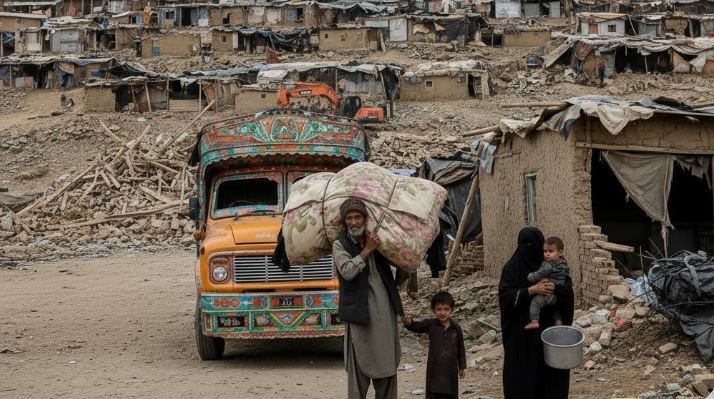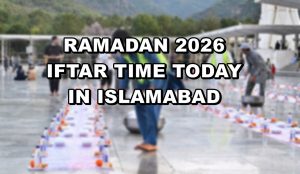For decades, Pakistan did what others would not. It opened its doors to Afghan families running from war, hunger, and fear, strangers who were treated like kin. The decision came not from strategy, but from the heart, from faith and shared humanity. Yet, after forty long years, that open door has come at a cost. The warmth of generosity has given way to exhaustion, as Pakistan now struggles under the weight of economic loss and rising insecurity.
All across Pakistan, frustration hangs in the air. In Faisalabad’s noisy textile mills and Quetta’s bustling bazaars, one question echoes: How much longer must we carry this weight? The economy is faltering, jobs are vanishing, and smuggling has crippled honest businesses. The patience of ordinary Pakistanis — once vast and forgiving — is now wearing dangerously thin.
When Pakistan signed the Afghan Transit Trade Agreement (ATTA), the goal was simple: to help Afghanistan recover by giving it free access to Pakistani ports. But the policy was exploited. Instead of reaching Kabul, truckloads of electronics, tyres, and textiles slipped back across the border into Pakistan — tax-free. Local industries couldn’t survive the onslaught of cheap, untaxed imports. What was meant to uplift Afghanistan ended up hollowing out Pakistan’s own economy.
When the government finally tightened the borders in 2025, the results were startling. Legal trade through official channels shot up by 78% in July alone, exposing the scale of the black market that had quietly flourished for years. That single statistic told the whole story — Pakistan had been bleeding revenue every month while smugglers grew rich. But the danger runs far deeper than lost taxes or shuttered factories. Intelligence findings now suggest that the profits from this illegal trade don’t just vanish — they’re funneled into terror networks. Several Afghan groups operating inside Pakistan are believed to have links with hostile intelligence agencies, including India’s, as well as extremist outfits like Fitna al-Khawarij and Fitna al-Hindustan. What started as smuggling for profit has evolved into a funding pipeline for violence, targeted killings, and instability.
Refugee camps that once stood as symbols of compassion have, in too many cases, become shelters for criminals and terrorists. Police investigations have traced weapons, drugs, and terror financing to networks linked with Afghan operatives. The pattern is clear — as the economy bleeds, security worsens, and ordinary citizens are left to pay the price.
No country in the world can endlessly host millions of foreign nationals, especially when that hospitality is being used against it. Pakistan’s repatriation policy — though criticized internationally — is supported by nearly every segment of its society. Business owners call it an act of economic survival; citizens see it as the country reclaiming control over its own fate. Compassion, they argue, cannot be limitless when it threatens your own people’s safety.
In Islamabad, officials are now asking the questions that should have been asked years ago: if Afghanistan’s government has found new allies — particularly India — and speaks proudly of self-reliance and partnership, then why can’t it take responsibility for its own citizens? Pakistan sheltered Afghans for decades, gave them land, jobs, and protection. But instead of gratitude, it faces accusations, smuggling, and border insecurity. As one political observer put it bluntly: “If Kabul has found comfort in Delhi, then maybe it’s time it sends its people there — not keep burdening Pakistan for another generation.”
This sentiment, once quietly shared, has now become a national chorus. Pakistanis from all walks of life — traders, teachers, police officers, even daily wage laborers — are saying the same thing: enough is enough. The Afghan refugee issue is no longer just about compassion; it’s about survival. It’s about a country trying to secure its borders, protect its industries, and safeguard its people.
Islamabad’s position is firm. Pakistan has already fulfilled its moral and humanitarian duty. The repatriation of Afghan nationals is not cruelty; it’s a long-overdue act of self-preservation. Every state has the right to protect its borders, its economy, and its citizens. Pakistan’s compassion was never meant to be permanent, and it cannot continue at the cost of its own stability.
The message to Kabul is clear: Pakistan’s generosity was an act of faith, not a blank check. The time has come for Afghanistan to stand on its own feet — and for Pakistan to reclaim control over its own house.
For decades, Pakistan gave shelter and kindness without question. But now, compassion has met its limit. The nation that once opened its doors must finally close them — not out of hate, but out of necessity, to protect the very home that offered refuge for generations.
Pakistan’s Breaking Point: How Afghan Smuggling, Security Threats Pushed Generous Nation to the Edge














